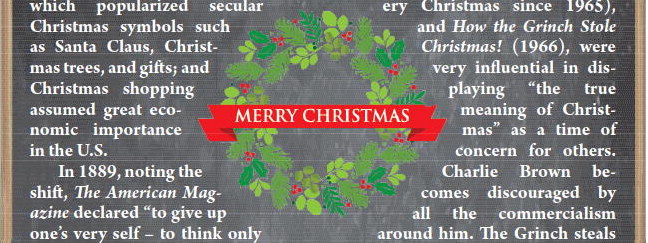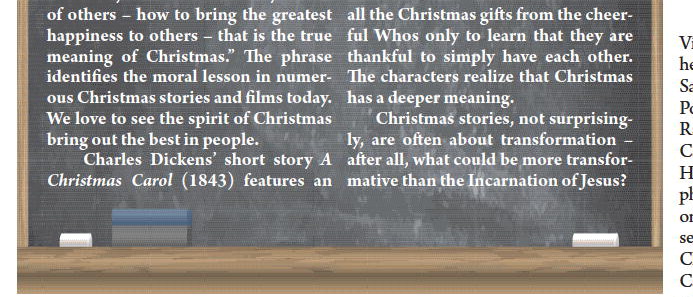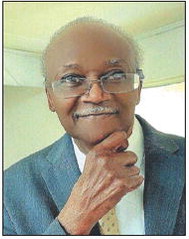Teachable Moment
the Teachable Moment
What is the True Meaning of Christmas?
The phrase “the true meaning of Christmas” appeared in the mid-1800s when the nation began to shift toward Santa Claus and away from the birth of Christ, and toward receiving gifts instead of giving to others in need. This shift was displayed in poems such as “A Visit from St. Nicholas” (1822) by Clement Moore which popularized secular Christmas symbols such as Santa Claus, Christmas trees, and gifts; and Christmas shopping assumed great economic importance
in the U.S. In 1889, noting the shift, The American Magazine declared “to give up one’s very self – to think only of others – how to bring the greatest happiness to others – that is the true meaning of Christmas.” The phrase identifies the moral lesson in numerous Christmas stories and films today. We love to see the spirit of Christmas bring out the best in people.
Charles Dickens’ short story A Christmas Carol (1843) features an old miser named Scrooge who learns the true meaning of Christmas when three ghostly visitors show him his dark future if he doesn’t stop loving money rather than people. Scrooge changes and gives his money and his time to others.
The animated TV specials A Charlie Brown Christmas (on TV every Christmas since 1965), and How the Grinch Stole Christmas! (1966), were very influential in displaying “the true meaning of Christmas” as a time of concern for others. Charlie Brown becomes discouraged by all the commercialism around him. The Grinch steals all the Christmas gifts from the cheerful Whos only to learn that they are thankful to simply have each other. The characters realize that Christmas has a deeper meaning.
Christmas stories, not surprisingly, are often about transformation – after all, what could be more transformative than the Incarnation of Jesus?








